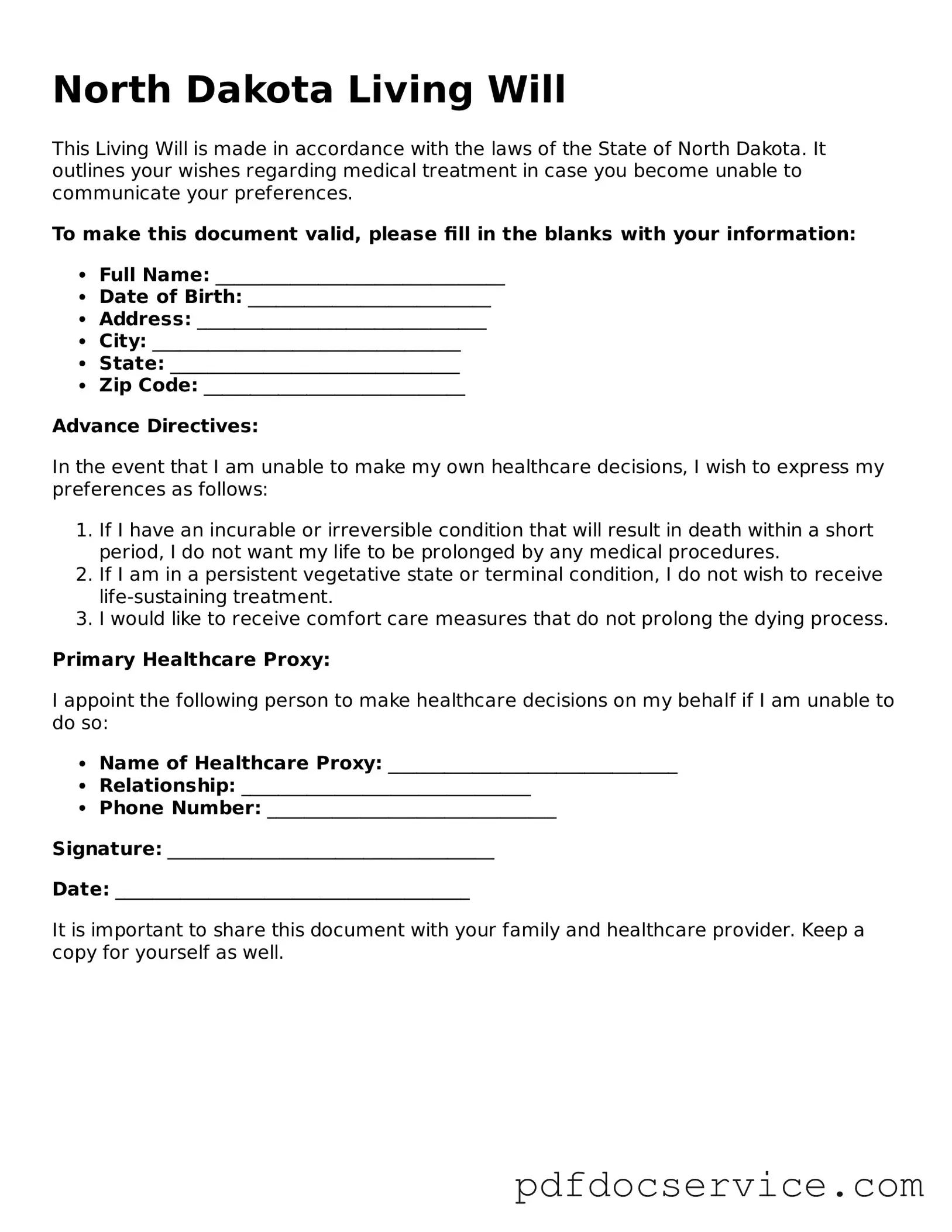What is a North Dakota Living Will?
A North Dakota Living Will is a legal document that allows you to outline your wishes regarding medical treatment in case you become unable to communicate your preferences. It specifically addresses situations where you may be terminally ill or in a persistent vegetative state, ensuring that your healthcare decisions align with your values and desires.
Who should have a Living Will?
Anyone over the age of 18 can create a Living Will. It's especially important for individuals with serious health conditions, those who are elderly, or anyone who wants to ensure their healthcare preferences are known. Having a Living Will can provide peace of mind for you and your loved ones.
How do I create a Living Will in North Dakota?
To create a Living Will in North Dakota, follow these steps:
-
Reflect on your healthcare preferences and what treatments you would want or refuse.
-
Obtain a Living Will form, which can often be found online or through healthcare providers.
-
Complete the form by clearly stating your wishes.
-
Sign the document in front of two witnesses or a notary public, as required by North Dakota law.
Can I change my Living Will once it is created?
Yes, you can change or revoke your Living Will at any time. To do so, you should create a new document that clearly states your updated wishes or simply destroy the original document. Make sure to inform your healthcare providers and loved ones about any changes to ensure they are aware of your current preferences.
What happens if I do not have a Living Will?
If you do not have a Living Will, your healthcare decisions may be made by family members or medical professionals based on what they believe you would have wanted. This can lead to confusion and disagreements among your loved ones during difficult times. Having a Living Will helps avoid these situations by clearly outlining your preferences.
Is a Living Will the same as a Power of Attorney?
No, a Living Will and a Power of Attorney are not the same. A Living Will specifically addresses your wishes regarding medical treatment, while a Power of Attorney allows you to appoint someone to make financial or legal decisions on your behalf. You may want both documents to ensure your wishes are honored in all areas of your life.
Where should I keep my Living Will?
Store your Living Will in a safe but accessible place. Inform your family members and healthcare providers about its location. It’s also a good idea to carry a copy with you, especially if you are undergoing medical treatment or traveling.
Can I use a Living Will from another state in North Dakota?
A Living Will from another state may be honored in North Dakota, but it’s best to check the specific laws and requirements. To ensure that your wishes are clear and enforceable, consider creating a new Living Will that complies with North Dakota laws.

